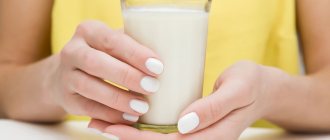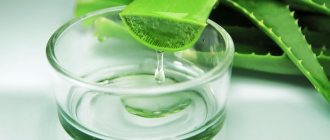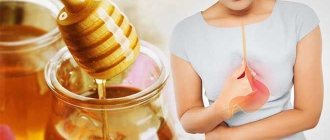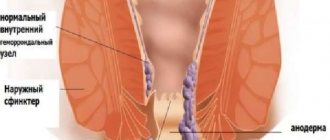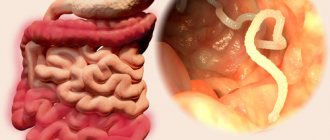Increased acidity of gastric juice is often associated with excessive consumption of tea drinks. Tea causes heartburn due to the caffeine it contains, which affects the normal functioning of the gastrointestinal tract and digestive processes. Its main effect is to increase the activity of gastric mucosal cells that secrete hydrochloric acid and increase gastric acidity.
The degree of influence on acid formation directly depends on the concentration of caffeine in the drink. Black tea contains more of it than all other varieties (yellow, oolong, puer). It is not contained in mint, chamomile and other types of herbal drinks prepared without the addition of tea tree leaves. However, these types of tea can cause heartburn for other reasons, for example, peppermint can reduce the tone of the esophageal sphincter and thereby contribute to the appearance of this symptom.
Can you experience heartburn after drinking green tea, since it is believed to be very beneficial and helps in the prevention of many diseases? It is made from the same tea leaves as black tea. The only difference is in the processing technology. Accordingly, it also contains caffeine and affects the acidity of the stomach.
Frequent snacking and drinking tea also contribute to the appearance of unpleasant sensations. If the break between meals is short, then the remaining hydrochloric acid does not have time to be neutralized, and the digestion process begins again. The result is increased acidity and heartburn after drinking tea.
Can tea cause heartburn?
To maintain health, you should “listen” to the body’s reactions to food and adhere to the recommendations of nutritionists about proper and high-quality nutrition.
Heartburn most often occurs after eating or drinking and is accompanied by an unpleasant burning sensation behind the sternum. It's all about the increased concentration of hydrochloric acid in the stomach.
Food from the mouth passes through the esophagus and enters the stomach, where it is digested in gastric juice. Sometimes, due to improper nutrition, the contents of the stomach flow back into the esophagus, thereby causing irritation of the mucous membrane and discomfort. In this case, heartburn is caused by overeating and drinking tea immediately after eating.
Before brewing a drink, you should figure out what these inconspicuous-looking, twisted and dried leaves are made of. The tea leaf contains tannins, vitamins, essential oils, amino acids, a number of useful chemical elements and caffeine.
The presence of the latter is a “catalyst” for increasing the acidity of gastric juice and another cause of heartburn.
How to deal with heartburn?
16.04.2021
Nothing can ruin your experience after a delicious dinner or a delicious dessert like heartburn . Its appearance makes you forget about the wonderful taste sensations just a minute ago. It is formed by the flow of acidic nutrients back from the stomach into the esophagus . It's worth knowing what causes heartburn and how to deal with it.
You better beware of these products
causes of heartburn . Among them, it is worth mentioning pregnancy , excessive secretion of stomach acid, the use of certain medications, as well as poor diet. The latter has the greatest influence on its appearance in healthy people. It should be remembered that food directly affects both sensory nerve receptors and the esophageal sphincters. You must be especially careful:
- acidic foods, which are characterized by a strong osmotic charge and astringent effect, as they stimulate altered inflammation of the mucous membrane, leading to a sensation of pain and burning;
- chocolate and high-fat foods, which activate nerve reflexes and the secretion of gastrointestinal hormones
- coffee, which stimulates the secretion of stomach acid, which, when the tension of the lower esophageal sphincter decreases, causes it to fall back into the esophagus .
Light diet
Diet therapy recommends an easily digestible diet with a reduction in the amount of fats and foods that stimulate the secretion of gastric juice. Particular attention should be paid to the correct distribution of the daily diet into 5-6 small portions, which will prevent excessive stress on the stomach . The last dish, in turn, should be eaten several hours before bedtime.
At the first symptoms of heartburn, you should seek relief by mechanically cleaning the esophagus . To do this, you can drink a glass of water or milk. The advantage of milk over water is that it neutralizes stomach acid due to its alkaline effect.
People suffering from heartburn should take a closer look at what they eat to know which foods cause them more discomfort. The previously mentioned fats (meat, cheese), coffee and chocolate, as well as orange and tomato juices, which stimulate digestive receptors, should be excluded from the diet. In addition, fresh bread, onions, garlic, leeks and peppers are contraindicated.
In this case, you can eat potatoes, carrots, beets, cauliflower, spinach, fruits without skin and seeds, milk, yoghurts, kefir, lean meat, still mineral water and herbal teas (but not mint!).
And if it's something more serious...
We should not forget that sometimes heartburn is a symptom of more serious health problems. If symptoms persist despite following dietary recommendations, seek help from your doctor . Its appearance may indicate hiatal hernia , metabolic disorders, or various stenoses in the gastrointestinal tract.
Published in Gastroentorology Premium Clinic
What teas cause heartburn?
Caffeine is a major component of many coffees and teas and can cause heartburn symptoms in people with gastrointestinal problems. Accordingly, strongly brewed drinks can also lead to unpleasant consequences. When preparing tea tree infusion, adding products such as sugar, honey, lemon can increase the acidity of gastric juice.
Bagged
Bagged teas are convenient to drink, but in terms of quality they are inferior to large-leaf teas and brewed teas.
Bagged tea is inferior in quality to loose leaf tea.
In addition, the dubious contents and chemical composition of the bag itself adversely affect a problem stomach.
With milk
The beneficial properties of milk are valued in medicine.
It can improve the functioning of the body, improve metabolism, and have a positive effect on the intestinal microflora. Milk added to tea softens the drink, reducing the amount of caffeine in it. The presence of protein and calcium has a beneficial effect on the gastric mucosa.
With bergamot
Tea with bergamot has a pleasant, tart taste. But it is not advisable to drink it during frequent attacks of heartburn. Citrus plants have a bad effect on the gastrointestinal tract. However, bergamot oil has a good effect on the cardiovascular and central nervous systems and reduces cholesterol levels.
With lemon
Like bergamot, lemon is a citrus fruit, and its pleasant sourness further increases the acidity of gastric juice. By giving up lemon, you can get rid of the annoying burning sensation.
Tea with lemon increases stomach acidity.
How does heartburn occur?
Most often, heartburn occurs when acidic gastric juice affects the esophageal mucosa. This happens when the contents of the stomach reflux (in scientific terms, reflux) into the esophagus. The reason for such an unnatural process is incomplete closure of the sphincter (the valve that normally separates the esophagus and stomach). Aggressive gastric juice irritates the wall of the esophagus, which is manifested by a burning sensation.
Important! Heartburn can also be caused by the reflux of duodenal contents into the esophagus, which are mixed with bile and pancreatic enzymes. These are no less strong irritants for the delicate mucous membrane of the esophagus than gastric juice.
Heartburn and tea during pregnancy
Heartburn during pregnancy is not dangerous, but very unpleasant, occurring in 80% of pregnant women.
There are two reasons for this. The first is the muscular sphincter (a kind of valve between the stomach and esophagus), relaxed under the influence of the hormone progesterone. The second is the enlarged uterus, which begins to put pressure on neighboring organs: the stomach, intestines. The volume of the stomach decreases, and a minimal amount of food leads to its overflow and reflux of food back into the esophagus. Heartburn during pregnancy is a temporary phenomenon, not related to the acidity of the stomach, and most often goes away with the birth of the child. You can get rid of the burning sensation at home. The main thing is to understand the cause and find a remedy to relieve the ailment.
Tea should be consumed in small quantities, and if heartburn occurs frequently, exclude it from the diet or switch to medicinal tinctures.
British Society of Gastroenterology advice for heartburn and gastroesophageal reflux
British Society of Gastroenterology recommendations for patients with heartburn and gastroesophageal reflux
The British Society of Gastroenterology (BSG), with the participation of the Core (the Digestive Disorders Foundation) and the Primary Care Society for Gastroenterology (PCSG), has prepared a number of tips and recommendations for patients suffering from heartburn and gastroesophageal reflux:
What is gastroesophageal reflux?
When you eat or drink something, the food or drink passes from the top to the bottom of the esophagus and enters the stomach. The direction of such movement must necessarily be in one direction. If the contents of the stomach begin to move in the wrong direction - back into the esophagus, then this is called reflux. Unlike vomiting, which occurs quite consciously, reflux mostly occurs outside of our awareness.
What causes reflux?
There is a ring of muscles around the lower part of the esophagus that prevent stomach contents from entering the esophagus. When we eat or drink, these muscles relax, but when we finish drinking, the muscle ring contracts. If these muscles are not efficient enough, reflux can occur.
Does reflux always present with any symptoms?
Of course not. Almost all of us experience reflux from time to time, but we don't notice it. However, if reflux occurs frequently, it can lead to various symptoms.
What are the symptoms of gastroesophageal reflux?
The most common symptom is heartburn, which appears as a burning sensation in the chest. Move your hand to the bottom of your sternum. Heartburn is usually most noticeable at the lower end of the sternum. The feeling of burning and discomfort also affects the upper area, its extent depends on the individual characteristics of the person. Sometimes the burning sensation can reach all the way to the throat. Heartburn often increases after rich and fatty meals, citrus fruits, hot or alcoholic drinks. Sometimes this sensation can penetrate deep into the chest - almost to the back. Some patients experience reflux when some of their stomach contents flow back up into the esophagus, reaching the throat or even the mouth. Some people feel discomfort or pain when swallowing. Very often these symptoms worsen at night or when lying in a horizontal position.
What is esophagitis?
Sometimes, even in people who have fairly severe symptoms, the esophageal mucosa is in normal condition. In others, esophagitis may develop. The medical term ending in “-itis” means inflammation. The presence of inflammation indicates that there is a danger to the body. Esophagitis is inflammation of the esophagus. An inflamed esophagus looks red and hurts. If the inflammation is severe, then ulcers appear on the inflamed area. A common cause of esophagitis is reflux of acid from the stomach.
How does reflux cause esophagitis?
The stomach secretes acid necessary for digestion. The acid is mixed with all food and drink that enters the stomach. This is a very strong acid and if it is thrown in during reflux in sufficient quantities and often enough, it will begin to have a damaging effect on the mucous membrane of the esophagus. At first, the lining of the esophagus becomes simply redder than usual. Then damage appears on the surface of the esophagus, and in severe cases, ulcers.
Should I see a doctor?
Heartburn is very common. Most people who have the symptoms listed above can help themselves by adjusting their diet, and perhaps also taking antacids or other gastrointestinal medications. But if this does not work, or if your condition causes you concern, then you need to see a doctor. It is also advisable to consult a doctor if the symptoms that appear do not go away. You should definitely see a doctor if you have trouble swallowing and if it seems like the food you swallow is getting stuck in your esophagus.
Why do I have reflux?
In many cases, we simply do not know why the ring of muscle that prevents gastroesophageal reflux does not work properly. Some people may be prone to reflux - especially those who smoke, drink excessive amounts of alcohol, are overweight, and women during pregnancy. Wearing tight clothing, bending forward or bending the body, and eating large and fatty foods can trigger reflux. However, people who lead a healthy lifestyle and do not have any of the above “risk factors” sometimes experience corresponding symptoms. It often happens that reflux causes certain symptoms, but there are no signs of esophagitis. Doctors believe that in this case the mucous membrane of the esophagus is very sensitive to the acid thrown up by reflux.
Should I get tested?
Your doctor can diagnose reflux by listening carefully to your description of your symptoms and may decide that you do not need any testing. If your doctor doesn't think your description of your symptoms is sufficient, or if the prescribed treatment doesn't work, you may be referred for testing.
What examinations can I be referred for?
The first test that is most often performed when reflux esophagitis is suspected is endoscopy. To detect signs of inflammation, the doctor will insert a flexible tube through your mouth into your esophagus and below, through which you will examine your esophagus and stomach. Although it sounds unpleasant, your doctor will try to explain how the discomfort of this procedure will be minimized. You may also be referred to measure the amount of acid that is pushed up into the esophagus by reflux. To do this, a very thin probe is inserted into the esophagus through the nose, with which the acidity in the esophagus is measured over a 24-hour period
.
What if I don’t want to have an endoscopy?
No one will force you to do any examinations. Although it would be reasonable for the doctor to explain to you why this is important and why you should do it. An alternative to endoscopy is a barium contrast test, which will show your esophagus and stomach on an X-ray. It provides less information than endoscopy, but with its help the presence of a hiatal hernia or narrowing of the esophagus is well determined. It is worth noting that half of all patients with symptoms that suggest reflux have only mild inflammation of the esophagus or the esophagus appears completely normal.
Does it matter if I have a hiatal hernia?
Short answer: not much. Instead of being completely in the abdomen all the time, part of the stomach may extend up into the chest. This occurs through an opening in the diaphragm called the hiatus esophageus
. A hernia itself rarely causes any symptoms, but its presence makes reflux more likely. Note:
- Hiatal hernia is very common.
- You can have reflux without having a hernia.
- Many patients who have a hiatal hernia do not have reflux.
The effect of hiatal hernia on reflux may certainly be overestimated.
What is the best treatment for reflux symptoms?
Because the severity of the condition can vary from rare reflux symptoms in some people to serious concern in others, treatment varies from one patient to another. By making lifestyle changes, you can sometimes get rid of these symptoms. There are also medications that you can buy over the counter and without a doctor's order that can relieve your symptoms. However, there is no “simple” treatment.
How can I help myself?
Your symptoms will likely improve if you take steps to reduce your reflux. The number of reflux increases with heavy meals, especially late in the evening. Eat little, but more often if necessary. If you have extra pounds, losing weight usually helps a lot. If you drink, reduce the amount of alcohol and also stop smoking. Eat early enough in the evening so that you don't go to bed with a full stomach. Elevating the head of the bed may also reduce reflux. Try to avoid bending forward and wearing tight-fitting clothes, as this can put extra pressure on your stomach. There are many useful medicines freely sold in pharmacies. Many people take antacids, which neutralize stomach acid. Talk to your pharmacist about medications to relieve reflux symptoms.
How can a doctor help?
If your symptoms are not very severe, your doctor may suggest you follow the tips above. If they don't work or your symptoms are more severe, your doctor will likely prescribe medication for you. Ideally, your doctor would prescribe a drug that would completely eliminate your reflux, but there are no such drugs. Fortunately, there are a wide range of medications that can reduce the amount of acid that enters the esophagus. They vary in strength and your doctor will try to choose the one that is best for you. The good news is that there is a drug available for almost every patient that is both very safe and very effective.
Will I need treatment for the rest of my life?
Many people can significantly reduce their reflux symptoms with lifestyle changes. Others may need to take medication occasionally when symptoms return. Some will not be able to do without taking medications for a significant period of time. The very reassuring thing is that it is very safe. There are a small number of people for whom drug treatment is not effective for one reason or another. In such cases, it is certainly necessary to resort to surgical treatment.
Is reflux esophagitis a serious disease?
For most people, reflux is just a nuisance and nothing more. Some, especially those with severe inflammation of the esophagus, are at risk of complications, which may include internal bleeding and narrowing of the esophagus. If you are concerned about these complications, discuss it with your doctor.
What scientific research is needed?
It would be an important step forward if we could figure out what exactly is happening in the body that causes reflux. We really don't understand why this happens so often and why some patients have such unpleasant symptoms. Although the treatment is effective, many patients experience a return of symptoms soon after stopping the medication. If we could figure out what causes reflux, we might have a good chance of providing our patients with effective care, preventing complications, and perhaps even getting rid of reflux. We also recommend the American College of Gastroenterology patient brochure
“Is It Just a Minor Heartburn or Something More Serious?”
and American Gastroenterological Association:
“Heartburn and Reflux Disease.
The essence of the problem", articles
"Advice from the American College of Gastroenterology for problems with swallowing and heartburn" and "Heartburn",
and conversations with Dr. Castell:
"What is GERD" and "About the diagnosis of GERD caused by non-acid reflux", "Not a joke, but a complaint stomach! Back to section
Ways to combat heartburn
You can get rid of heartburn using folk remedies, as well as medications, on the recommendation of a doctor.
The simplest and most effective method known to people is a solution of soda and water.
Ingredients:
- half a glass of warm water;
- 1 tsp. baking soda.
A solution of baking soda and water is an easy way to get rid of heartburn.
If the discomfort does not go away for a long time, it is advisable to consult a doctor for a more thorough examination and treatment with prescribed medications.
What medications effectively help with heartburn?
Why can't you drink soda if you have heartburn?
You've probably heard that you can get rid of heartburn at home with baking soda.
This is what our grandparents did (the case when folk remedies are more likely to cripple). From chemistry lessons we know: an acid can be neutralized with an alkali to water. But we must remember that this chemical reaction releases carbon dioxide. Once in the stomach, it provokes the production of a new portion of acid. It's like putting out a fire and adding fuel to it at the same time. There is a short-term effect, but then it gets worse.
How to choose a drug for heartburn?
To begin with, we will list the reasons that can lead to heartburn, so that you take your health seriously and, if the symptom appears frequently, consult a specialist for diagnosis.
Possible causes of heartburn:
- chronic gastritis with increased acid secretion,
- hiatal hernia,
- ulcer,
- reflux disease,
- zero acidity (achlorhydria).
Heartburn can also be caused by the effects of gastric surgery, the use of certain medications, hypersensitive esophageal syndrome, and pregnancy.
Medicines used for heartburn:
- Antacids
. Contains magnesium, calcium or alginic acid salts that neutralize hydrochloric acid. These are natural substances for our body, so they do not irritate the mucous membranes. There are analogues containing aluminum salts, but they can lead to digestive disorders. - Preparations that form a gel barrier
, preventing acid reflux. - Drugs that suppress acid secretion
. Drugs of this type should be prescribed by a doctor; for some diagnoses their use is not recommended. - Prokinetics
. Increase muscle tone, accelerate the transit of food from the stomach to the intestines. Specialist consultation is required.
Antacid complexes are the most gentle way to get rid of unpleasant symptoms.
CONSUMED offers five antacid complexes for heartburn, which differ in release form (tablets, suspension, gel suspension), as well as auxiliary components.
Additional recommendations:
- For 1.5–2 hours after eating, do not bend over or take a horizontal position.
- Avoid tight clothing, belts and corsets that compress the gastrointestinal tract.
- Avoid heavy lifting.
- Stop smoking.
- Eat small portions, do not overeat.
- Avoid irritating foods: too hot, cold, spicy, sour, fatty.
- Reduce your consumption of coffee, strong tea, chocolate and alcohol.
Dietary supplement IT IS NOT A MEDICINE. BEFORE USE, IT IS RECOMMENDED TO CONSULT WITH A SPECIALIST.
Medicinal teas
Medicinal tinctures based on medicinal herbs help relieve the unpleasant sensation. They do not contain caffeine, which means there is no risk of increased acidity. They can relieve burning sensations and also relieve many other diseases.
Green
All types of tea are made from the dried leaves of the Camellia sinensis bush. The type of tea depends on the degree of their oxidation. Green tea is made from unoxidized leaves and goes through the least amount of processing steps. For this reason, it retains a large amount of antioxidants and beneficial polyphenols. It is naturally low in calories and contains less caffeine than coffee.
Mint
The mint drink has a strong aroma and a light green tint. Mint contains beneficial substances such as menthol and folic acid. The high content of beneficial components enhances the therapeutic effect of mint, eliminates heartburn, nausea, headaches, etc.
Peppermint tea has a light green hue.
Ginger with cinnamon
The combination of ginger and cinnamon gives the drink a slightly bitter apple flavor with a strong aroma. Ginger is known as an anti-inflammatory agent and is widely used to combat excess weight. To obtain a clear amber color, it is best to use cinnamon sticks.
Chamomile with chicory
Chamomile tea with chicory easily eliminates spasms and has a calming effect on the gastrointestinal tract and many other parts of the body. Chicory vaguely resembles a coffee drink. Very often, coffee lovers use it instead of coffee. The main advantage of chicory is the absence of caffeine, as well as the content of inulin in the root of the flower - dietary fiber, which has a beneficial effect on metabolism and the digestive system.
Blooming Sally
Ivan tea tincture has a golden hue and a sour taste. The presence of a large amount of tannins and mucus in the plant contributes to the enveloping effect of the mucous membrane of the irritated esophagus. Ivan tea is used in the treatment of peptic ulcers and other gastrointestinal pathologies.
Ivan tea has a sour taste.
Recommendations on how to prevent heartburn
To prevent heartburn, you need to adhere to healthy eating rules.
The following recommendations will help avoid the discomfort caused by heartburn:
- eat light and healthy foods;
- do not overeat, eat 4-5 times a day in small portions;
- drink liquid half an hour after eating;
- eat fried, salty and sweet foods in moderation;
- reduce the amount of drinks containing caffeine;
- add milk or cream to tea;
- refuse bagged tea in favor of loose leaf tea;
- do not brew strong tea;
- drink drinks not hot, but warm;
- To prevent diseases, take medicinal infusions.
